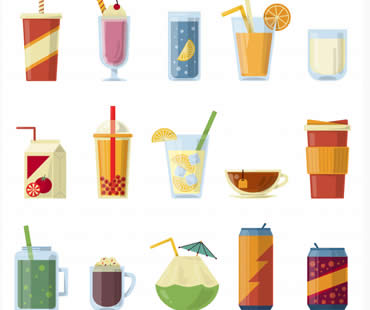
Lots of things can go wrong with your oral health if you aren’t aware of potential problems and how to avoid them. There are some simple ways that can help you maintain good oral health and steer clear of sometimes painful problems.
Cavities
Your first line of defense against cavities is good oral care, including regular and thorough brushing and flossing. Reducing your consumption of sugary and acidic foods and drinks will also help. Ask your dentist about fluoride treatments and dental sealants, both of which can provide extra protection against cavities. Quitting smoking is another good way to avoid problems, since the habit makes your teeth sticky and more prone to allowing bacteria to cling to your tooth enamel.
Gum disease
Practicing good oral hygiene is the best way to fight gum disease, also called gingivitis. Once you develop gingivitis, it can develop into the more serious periodontitis if you’re not careful. Brush at least twice daily with fluoride toothpaste and a soft toothbrush, which can be manual or powered. Floss every single day, and you may also rinse with an antiseptic mouthwash. Professional teeth cleanings and checkups twice a year, eating a balanced diet, and quitting smoking are also helpful in preventing gum disease.
TMJ
Temperomandibular joint disorder, or TMJ, is an increasingly common problem. It causes chronic jaw pain, popping, headaches, and neck problems. Teeth grinding or clenching are leading causes of TMJ, but it can also result from arthritis or trauma. If you suspect you are grinding or clenching your teeth, or are experiencing pain consistent with TMJ symptoms, visit your dentist. Some treatments include sleeping with a custom mouth guard, applying a warm washcloth to relax your jaw muscles, and practicing stress-reducing techniques like meditation.
If you need a dentist in Toronto contact us today

Everyone wants to attain a brilliant, white smile. Modern dentistry can help you achieve this goal with Invisalign teeth whitening or cosmetic enhancements such as veneers or porcelain crowns. Brushing and flossing will help you keep your smile in prime condition. Your diet can impact your teeth as well. Certain foods and beverages can darken your teeth, including:
• Tea Time
Considered a healthy beverage, tea may not keep your teeth white. In fact, black tea can leave more stains than coffee.
• Saucy Saucy
Yummy extras like soy sauce, tomato sauce, and curry sauce may taste delicious, but they have significant potential in the stain department. Choose lighter cream sauces or brush right away to limit issues.
• Sports Power
Highly acidic beverages, like sports or energy drinks, erode tooth enamel and make teeth more susceptible to stains. Try water when you exercise as a safer choice for your smile.
• A Little Wine
If a drink will stain your linens, it can also alter the appearance of your pearly whites, so limiting your intake of wine can protect your smile.
• Berry Good
Though blackberries, cherries, and blueberries are great for your body, the deeply pigmented molecules in these fruits can stick to enamel and cause discoloration. Pies and juices containing these foods can also stain teeth.
• Bubbling Over
Frequently a cause of stains, sodas and other carbonated drinks have acid and chromogens, which can lead to serious stains. Even lighter colored drinks have enough acid to allow staining from other foods and beverages.
Our dental office is located in Toronto

Waiting for the birth of a baby is an exciting time for any woman. Your body changes in many ways, including in your mouth. Though picking out names and nursery colors is important, taking proper care of your teeth and gums before, during, and after pregnancy will keep your oral health on track. These tips can help you keep your vibrant smile in top shape.
Before Pregnancy
While you are trying to conceive, schedule an appointment with your dentist. At this visit, the dental team can clean your teeth, examine your mouth, and address any issues before you have a baby on the way. Because x-rays are not recommended during pregnancy, this appointment is a good time to have those taken as well.
During Pregnancy
If you are pregnant make sure to tell your dentist right away. Procedures like cosmetic enhancements and X-rays should be avoided during pregnancy. Checkups are very important when you are pregnant, so don’t skip your visit. As a precaution, you should wait until the second trimester to see your dentist.
While your pregnancy progresses, watch for signs of pregnancy gingivitis, which usually involves tenderness, bleeding, or swollen gums. Talk with your dentist if these symptoms appear. Practicing good oral care and eating right will help minimize any impact on your oral health.
After Pregnancy
When you feel up to it, visit your dentist after delivery for a full evaluation of your oral health. Your dental provider can work out a detailed plan to address any issues from the pregnancy and renew your smile.
Schedule your appointment at our Toronto dental office

It’s easy to remember the basics about dental health. Most people know that they need to brush twice a day, floss often, and schedule checkups every six months. The following questions and answers offer important information about your oral health.
How does the dentist find a cavity?
Although some practices now have technology to aid in cavity detection, many dentists check the old-fashioned way. During your exam, the dentist uses a metal instrument to touch the surface of your teeth. If the tooth feels soft, that may indicate the presence of tooth decay.
What’s the difference between amalgam and composite fillings?
For years, metal filling were the choice for repairing teeth damaged by cavities. Over time, amalgam fillings can darken as well as change shape, which can cause them to leak. Now, composite fillings are often used instead. These tooth-colored restorations keep your smile looking good, and they allow for more conservative therapy.
Does teeth whitening work?
If you want a stunning smile, professional teeth whitening can give you beautiful results in many cases. For certain types of discolorations, like tetracycline staining, teeth bleaching may not work, but you could consider other options like porcelain veneers.
Can an adults straighten their teeth?
Absolutely. There is no age limit on a vibrant smile and about 25 percent of orthodontic patients are over 18 years of age. Modern treatment options such as Invisalign clear aligners allow adults to straighten teeth without the embarrassment or discomfort of metal braces.
Is an electronic toothbrush better than a manual toothbrush?
Most dentists agree that the best toothbrush is the one that encourages you to brush. Electronic brushes have benefits including ease of use and more thorough coverage. With manual brushes, they are inexpensive and can be easily replaced/
Our dental office is located in Toronto

Getting older impacts your whole life. Your body changes, including your mouth. Dental care is important for maintaining overall well being. Many seniors struggle with tooth loss and other dental health issues, like dry mouth or gum disease. Keep your teeth and gums healthy by remembering these helpful hints. Those individuals caring for aging parents or relatives can also benefit from the following tips:
• Make home care a priority. If you have trouble remembering to brush and floss, try posting little reminders in your bathroom near the sink. Caregivers can encourage this process as well.
• Choose a soft toothbrush. If the bristles are too hard, you can irritate gums and damage tissue.
• When you have dentures, clean them daily and use the special cleaners designed for this purpose, not just toothpaste.
• See the dentist twice a year. These appointments allow the doctor to check your teeth and gums for any problems. Depending on the state of your oral health, the dentist may suggest more frequent visits.
• Tell the dentist about any medications you are taking and any side effects that could affect your dental health. For example, some people experience dry mouth with certain medicines.
• Contact your dentist right away if you notice any unusual symptoms in your mouth. Letting issues like gum disease or tooth decay go can cause bigger problems in the long run.
• Maintain a healthy diet. What you eat influences your whole body health, including your teeth and gums.
Our dental office is located in Toronto

Having a teenager can be challenging. They have school work, multiple activities, and attitudes. This hectic time in life can also impact your teen’s dental health. Proper care and good oral hygiene will make sure that your teenager enjoys a lifetime of vibrant smiles.
• Encourage your teen to brush after each meal. Remind your son or daughter about the importance of flossing to remove plaque and promote gum health.
• Explain the consequences of not caring for your teeth, which can include bad breath, stains, and cavities.
• Make sure you stock up on the necessary supplies so that your teen has the right tools on hand. Purchase plenty of fluoride toothpaste, dental floss, and extra toothbrushes.
• Schedule regular checkups with the dentist. These appointments allow the dentist to assess your teen’s oral health and handle any problems right away.
• If your son or daughter has braces, get floss threaders from the orthodontist or buy them at the local drug store. Keep up with appointments for adjustments so that your teen’s treatment stays on track.
• For teens that play contact sports, including soccer, football, or volleyball, ask your dentist or orthodontist about a custom mouth guard. This oral appliance is designed to protect their teeth and mouth from potential injury.
• Limit your teen’s consumption of junk food by having health snacks like vegetables, fruits, and low fat dairy options readily available.
• Model good behavior. Showing that you believe oral health care matters will help your teen take your advice and warnings to heart.
Our dental office is located in Toronto







 E-Mail Us
E-Mail Us  416-595-5490
416-595-5490








